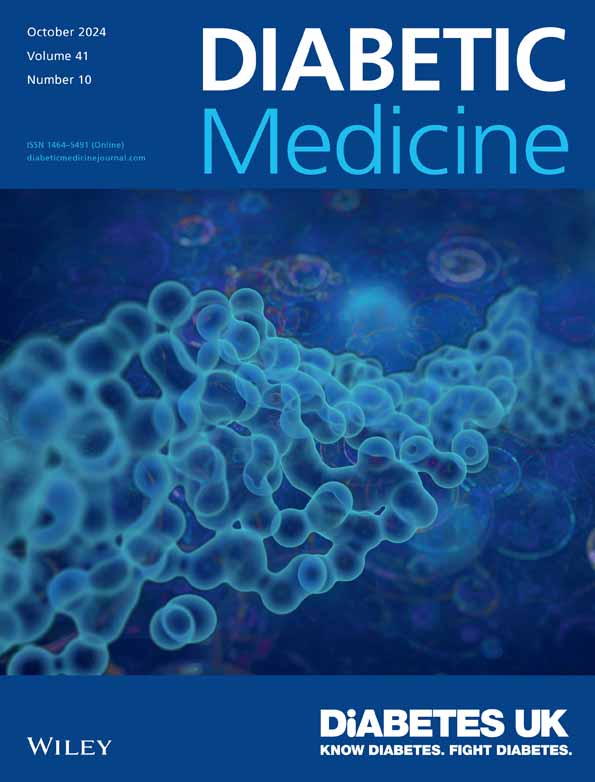Quality of diabetes mellitus healthcare and metabolic control during transition from paediatric to adult care: A systematic review and meta-analysis
Abstract
Aims
Emerging adults with chronic diseases like diabetes often experience a decline in health during the process of transition from paediatric to adult healthcare. This study assesses the impact of transition on healthcare quality of people with diabetes, focusing on glycated haemoglobin (HbA1c).
Methods
We conducted a systematic review and meta-analysis of the difference in HbA1c before and after transition following the PRISMA guidelines. A comprehensive search across four databases for studies of diabetes type 1 and 2 published between 2018 and 2024 was conducted. Risk of bias was assessed using the ROBINS-I tool for non-randomized studies.
Results
Twenty studies were included in the systematic review, fifteen to the meta-analysis. Eleven studies considered a structured or semi-structured transition programme: three reported a reduction in HbA1c (improved glycaemic control) and eight no significant difference. Nine studies considered no transition programme: four showed a worsening of glycaemic control and five no significant difference. Overall, the meta-analysis showed a worsening of glycaemic control post-transition with mean difference (MD) −1.75 mmol/mol (−0.16%) [95% confidence interval (CI) –5.24–1.75 mmol/mol (−0.48%–0.16%)], with considerable heterogeneity, where negative values indicate higher HbA1c post-transition. Subgroup analysis for transition programmes and usual care showed, respectively, significant improvement and worsening of glycaemic control with MD of 3.28 mmol/mol (0.30%) [95% CI 0.44–6.12 mmol/mol (0.04%–0.56%)] and −6.99 mmol/mol (−0.64%) [95% CI −11.79 to −2.19 mmol/mol (−1.08% to −0.20%)].
Conclusions
Findings suggest that the transition to adult care may negatively affect glycaemic control in emerging adults with diabetes, whereas structured transition programmes can neutralize this effect and prevent consequences. Further investigations are needed to develop evidence-based guidelines for optimizing transition interventions.


 求助内容:
求助内容: 应助结果提醒方式:
应助结果提醒方式:


